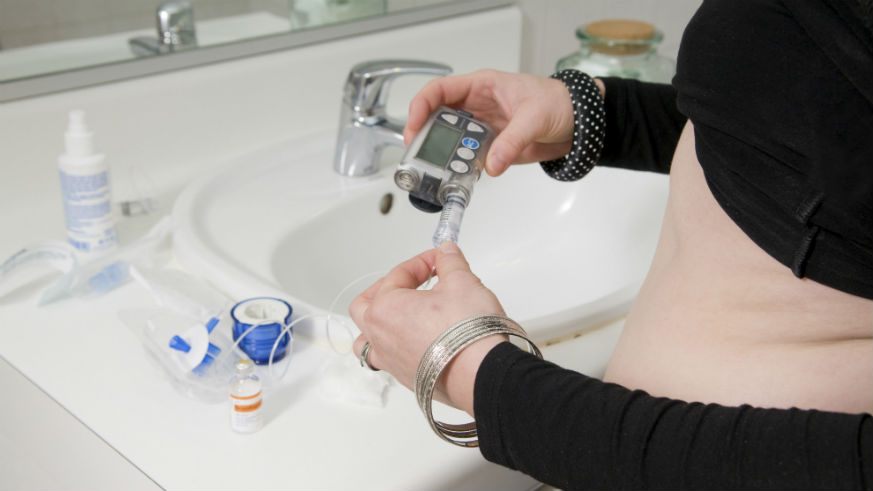Most of us are familiar with eating disorders like anorexia nervosa and bulimia and the devastating effects they can have on both the people that suffer from them and their families.
However, fewer of us are familiar with another eating disorder that is just as pervasive, according to experts, but not yet recognized by medicine: diabulimia.
Diabulimia happens when people with Type 1 diabetes restrict insulin to stay thin. Type 1 diabetes is a chronic disease where the body doesn’t produce enough insulin to break down sugars from food, leading the body to store it in the blood. High blood sugar can lead to everything from kidney failure to death.
Restricting insulin means the body can’t absorb food — or essential nutrients — and can’t gain weight. Even worse: Those who suffer from diabulimia aren’t as recognizable as those with anorexia, meaning they can get away with it for longer — often until it’s too late.
“You can look quite well and have a normal body size and yet because you’re restricting insulin inside you, you’re running very high blood sugars,” Professor Khalida Ismail, lead psychiatrist for diabetes at King’s Health Partners, told BBC Newsbeat in a new documentary about the disorder.
Natalie Ann Holoborow is the perfect example of a high-functioning person who suffered with diabulimia.
“On the left, I was 22 years old, severely underweight and in outpatients treatment. I was terribly affected by the bullying I went through in school and lost a massive amount of weight by skipping not only meals but cutting back on insulin, something which is life-threatening as a Type 1 diabetic,” she wrote in a 2016 Facebook post.
“I was so far into my illness it was impossible for me to think rationally. I was blue with cold a lot of the time, losing my hair, hormones didn’t work and you can see in my eyes how sad and consumed by it I was.”
She’s not alone: One study showed that upwards of 30 percent of women with Type 1 diabetes suffer from diabulimia.
And treatment for it is almost impossible to get because it’s not recognized as a legitimate eating disorder.
“She left us a very detailed note and she felt there was no hope for her, that there was nothing in place to help people with her condition,” Leslie Davison told BBC Newsbeat of her daughter, Megan. The 27-year-old hanged herself after a battle with diabulimia.
“In the absence of the help she needed, she couldn’t see any way of carrying on.”
Holoborow is now in recovery from her diabulimia — and thriving.
“Fast-forward three years and I’ve switched to insulin pump treatment, take insulin with EVERY meal, have now got a perfect blood sugar average and have reversed the damage caused (my retinopathy has reversed completely) as well as kept my weight at a healthy level for over a year,” she wrote in her post, adding that she competes in half marathons and other physical competitions.
“This post is simply to show how far I’ve come, to tell people it’s OKAY to speak out about it (and believe me I’m terrified sharing this) and that health professionals really need to keep an eye on patients to recognize that what they often deem to be ‘rebellion against diabetes’ could in fact be an eating disorder,” she continued.
“You can clearly see the difference in weight in the two pics but the biggest difference? My smile. I’m fully living life now.”



















